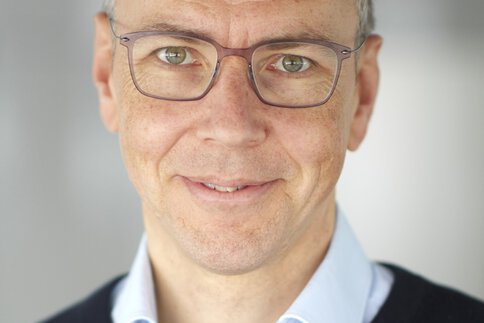ZEISS Research Award on the eve of the LASER
Since 1990, ZEISS has honored outstanding research achievements in the fields of optics and photonics with the “ZEISS Research Award”. This time, the celebratory award ceremony will take place as part of the LASER World of PHOTONICS in Munich.
Photonics innovations in the limits of technology. And sometimes it even pushes the boundaries of what is imaginable and feasible. It is precisely for such outstanding research achievements in the field of optics or photonics that the ZEISS technology group presents the “ZEISS Research Award” every two years. There have been 26 winners since 1990. Many have gone on to receive other important awards—four of them even won the Nobel Prize.
Immanuel Bloch wins “ZEISS Research Award”
This year, the award goes to Prof. Immanuel Bloch, scientific director at the Max Planck Institute of Quantum Optics in Garching and professor of experimental physics at Ludwig Maximilian University in Munich. According to ZEISS, the physicist is considered a pioneer in quantum research. With highly complex optical experiments at the interface of quantum optics, quantum information processing and solid-state physics he has established a new field of research: the study of artificial quantum matter using ultracold atoms in artificial crystals of light, so-called optical lattices. In his work, he succeeds in precisely measuring and controlling the interaction between atoms or small molecules with the help of ultracold quantum gases to better understand how quantum materials—such as superconductors—work. With this scientific work, Immanuel Bloch paved the way for the new interdisciplinary field of quantum simulation.
Award ceremony on the eve of LASER in Munich.
For his work, the international jury of experts chaired by Prof. Jürgen Mlynek of the Humboldt University Berlin has honored him with the coveted award. The award ceremony will take place in Munich on June 26, 2023—the evening before LASER World of PHOTONICS (June 27-30, 2023). ZEISS is inviting guests to the Deutsches Museum and expects around 200 guests from research, science, and technology. In addition to the “ZEISS Research Award”, the “Carl Zeiss Award for Young Researchers” will be presented there to three young scientists: Dr. Simon Baier from the University of Innsbruck, Dr. Arindam Ghosh from the Julius Maximilians University of Würzburg and Dr. Dasha Nelidova from the University of Basel. Baier works on quantum mechanics at the Institute for Experimental Physics in Innsbruck. Ghosh does research in biotechnology and biophysics. And Nelidova is working on ophthalmology at the Institute of Molecular and Clinical Ophthalmology in Basel. She has developed a novel method to restore vision after age-related macular degeneration—the most common cause of blindness in industrialized countries.

